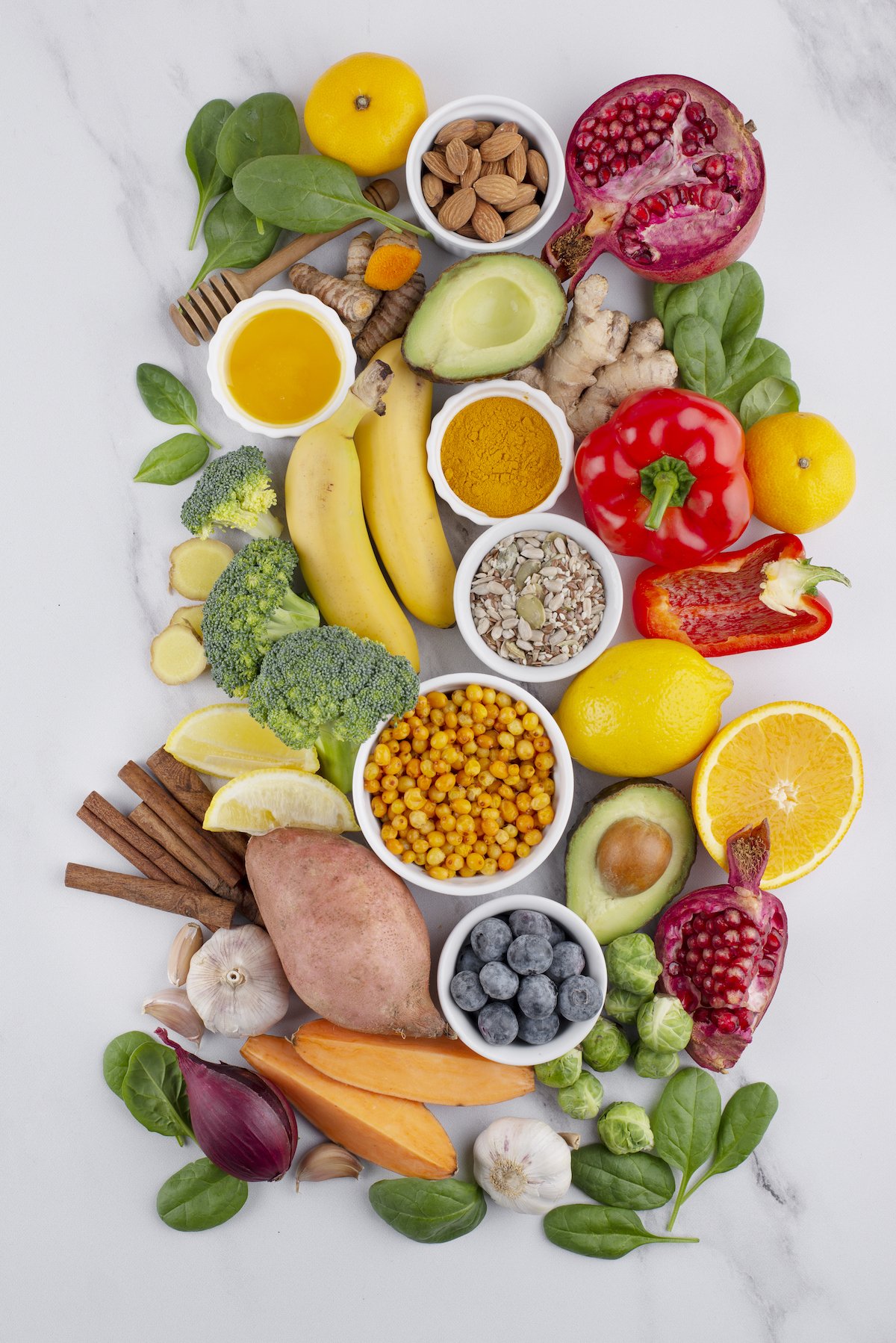PERIMENOPAUSE NUTRITION || A Nutritional Guide for Women in Their 40s [Meal Plan Included]
![PERIMENOPAUSE NUTRITION || A Nutritional Guide for Women in Their 40s [Meal Plan Included]](https://images.squarespace-cdn.com/content/v1/57058af18a65e2f19709cb0d/1745798383451-WDLWAWOE4N1RGHV31W09/positive-attitude-life-it-is-my-key-happiness.jpg)
Perimenopause is a topic that makes an appearance at every girl hangout I partake in these days. What is it and why are women so concerned about it? Should you do anything about it if you’re a woman entering your 40s?
As women enter their early 40s, many begin to experience perimenopause—a natural transition marked by hormonal fluctuations that can lead to symptoms such as hot flashes, mood swings, and sleep disturbances. While this phase is a normal part of aging, adopting specific nutritional strategies can help alleviate discomfort and support overall well-being. Who would say no to a comfortable night’s sleep?
Opt for foods that relieve hormonal fluctuations.
1. Embrace Plant-Based Diversity
Incorporating a variety of plant-based foods into your diet can significantly impact hormonal balance. A study from King's College London found that consuming 30 different plant foods weekly reduced menopause symptoms by nearly one-third. Aim to include a colourful array of fruits, vegetables, legumes, nuts, seeds, and whole grains to nourish your body and support gut health.
2. Prioritize Phytoestrogen-Rich Foods
Phytoestrogens are plant compounds that mimic estrogen in the body, potentially easing hormonal fluctuations. Foods rich in phytoestrogens include:
Soy products: tofu, tempeh, edamame
Flaxseeds and sesame seeds
Legumes: chickpeas, lentils
Incorporating these into your meals may help manage symptoms like hot flashes and mood swings.
Avocados, nuts, and seeds assist with hormone production to ease perimenopause symptoms.
3. Focus on Healthy Fats
Healthy fats are essential for hormone production and overall health. Include sources such as:
Avocadoos
Nuts and seeds
Fatty fish: salmon, mackerel
These fats support brain function, reduce inflammation, and promote heart health.
4. Ensure Adequate Calcium and Vitamin D Intake
Bone density can decrease during perimenopause, increasing the risk of osteoporosis. To support bone health:
Consume calcium-rich foods: dairy products, leafy greens, fortified plant-based milks
Include vitamin D sources: fatty fish, egg yolks, fortified foods
Supplements could be complementary to your daily food intake, but it’s best to consult a healthcare professional.
5. Limit Processed Foods and Embrace Whole, Complex Carbohydrates
Reducing the intake of processed foods and added sugars can help stabilize blood sugar levels and manage weight effectively. Opt for whole foods and complex carbohydrates to maintain energy and reduce mood swings.
What are whole foods? Whole foods are minimally processed and retain their natural nutrients and fibre. Some examples include:
Whole grains: brown rice, quinoa, oats, barley, and whole-wheat bread and pasta.
Legumes: lentils, chickpeas, black beans, and kidney beans.
Fruits: apples, berries, pears, and oranges.
Vegetables: sweet potatoes, broccoli, spinach, and carrots.
Complex carbohydrates found in these foods digest slowly, providing sustained energy and helping to prevent blood sugar spikes. Incorporating these into your meals can support hormonal balance and overall well-being during perimenopause.
Load up on fruits for a healthier you.
6. Stay Hydrated and Moderate Caffeine and Alcohol
Proper hydration supports overall health and can alleviate some perimenopausal symptoms. Additionally, moderating caffeine and alcohol intake may help reduce hot flashes and improve sleep quality. The impact of caffeine and alcohol seems to be exponential once I hit 40 years old, so I would highly recommend cutting back on the caffeine because it has led to other issues, such as the intensifying of migraines for me.
All the points above are a lot to take in. A more practical solution and something easier for you to implement is following the meal plan below. A healthy body starts with what we eat!
Meal Plan for Hormonal Balance
Breakfast: Nutty Flaxseed and Berry Smoothie
1 tablespoon ground flaxseed
1/2 frozen banana
1 cup milk of your choice (e.g., almond, soy)
1/2 cup frozen mixed berries
1 tablespoon nut butter
Optional: a dash of cinnamon or nutmeg for flavour
Blend all ingredients until smooth.
Lunch: Grilled Chicken Salad with Whole Grains
Grilled chicken breast slices
Mixed greens (e.g., spinach, kale)
Cherry tomatoes, cucumber, and red onion
1/2 cup cooked quinoa or brown rice
A handful of walnuts or pumpkin seeds
Dressing: olive oil and lemon juice
Salmon with herbs and a dash of lemon makes for a satisfying and healthy meal.
Dinner: Baked Salmon with Roasted Vegetables and Sweet Potato
Baked salmon fillet seasoned with herbs
Roasted vegetables (e.g., broccoli, bell peppers, zucchini)
1 medium sweet potato, baked or roasted
Incorporating these meals into your daily routine can help manage perimenopausal symptoms and promote overall health. Remember to drink lots of water! Since I’m not a doctor, it’s best to consult with a healthcare provider to receive personalized advice on what works for you. These tips are a compilation of the wisdom imparted to me by my dear girlfriends, women in their early 40s who have gone through or are currently entering the perimenopause phase, and could potentially help you navigate perimenopause with greater ease and vitality.






